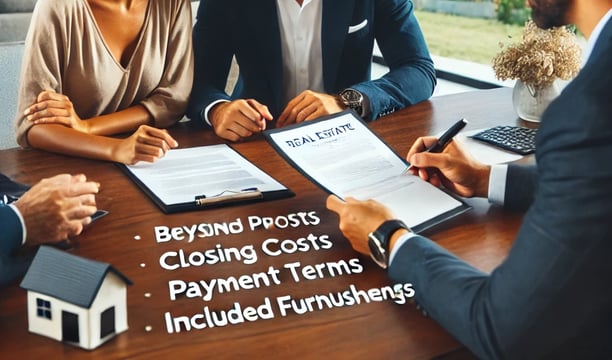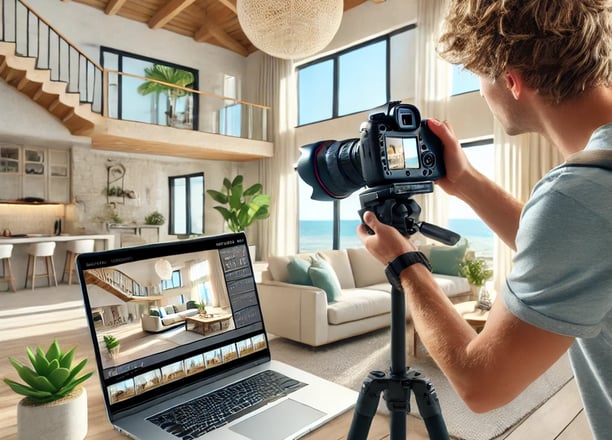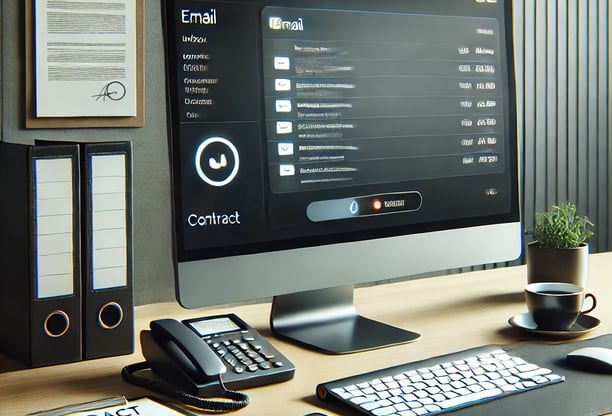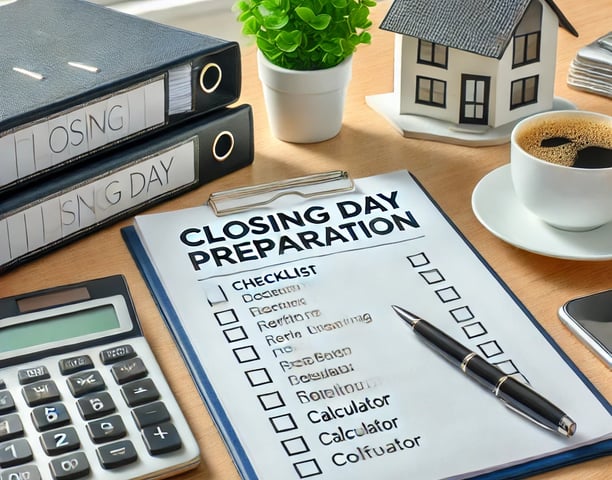Start Your Path to Homeownership Today
Buying or selling a home is a major milestone, and having the right guidance makes all the difference. It’s more than just a transaction—it’s about finding the perfect place or passing it on to the next owner.


Welcome to Your Home Buying Journey
Embark on the exciting journey of buying your dream home. Let us guide you through every step, ensuring a smooth and stress-free experience in the Dominican Republic.
Assessing Your Needs and Budget
Finding the Perfect Home Within Your Budget


Understand Costs & Set a Realistic Budget
Property prices vary by location—coastal areas like Punta Cana & Cabarete are more expensive than inland towns.
Factor in additional costs like property transfer tax (3% of property value), legal fees (1%–1.5%), and annual property tax (IPI: 1% on properties over RD$8,138,353).
If buying in a gated community, consider HOA fees.
Get Pre-Approved or Understand Payment Options
Financing: Mortgages for foreigners are limited, but local banks like Banco Popular and Scotiabank offer options with strict requirements.
Cash Purchases: Many buyers pay in cash to avoid financing hurdles.
Developer Financing: If buying pre-construction, developers may offer payment plans with down payments and installments.
Identify Your Must-Haves vs. Nice-to-Haves
Decide on your ideal location (e.g., beachfront, gated community, urban vs. rural).
Consider property type: Condo, villa, land, or pre-construction.
Prioritize needs like security, access to amenities, and proximity to services (schools, hospitals, supermarkets).


Finding the Right Property
Finding Your Dream Home in the Dominican Republic


Work with a Trusted Real Estate Agent
The Dominican Republic does not have a centralized MLS, so a knowledgeable local agent is essential.
Verify the agent’s experience, reputation, and knowledge of the legal process.
A good agent can help navigate negotiations, legalities, and ensure a smooth transaction.
Visit Properties & Verify Legal Documents
Schedule in-person visits or virtual tours if you’re abroad.
Ensure the property has a clean title (Título de Propiedad) and is free of liens.
If buying in a development, check the completion timeline, builder reputation, and any restrictions.
Choose the Right Location
Consider lifestyle preferences: beachfront (Punta Cana, Cabarete), city life (Santo Domingo, Santiago), or tranquil countryside.
Research safety, infrastructure, and access to amenities like hospitals, schools, and supermarkets.
Look into expat-friendly communities if you prefer an international atmosphere.


Financing and Mortgage Options
Understanding Your Mortgage & Financing Options


Developer & Owner Financing
Pre-Construction Projects: Many developers offer in-house financing with flexible payment plans.
Owner Financing: Some sellers may provide direct financing with negotiated terms, eliminating the need for a bank.
Benefits: Less paperwork, fewer restrictions, and sometimes lower interest rates than banks.
Alternative Payment Methods
Cash Purchases: Many buyers opt for cash transactions to avoid financing challenges.
International Bank Loans: Some foreign buyers use home equity loans or personal loans from their home country to purchase in the DR.
Consider Currency Exchange: If transferring large amounts, work with an exchange service to get the best rates.
Mortgage Options for Foreigners
Some Dominican banks, like Banco Popular, Scotiabank, and BanReservas, offer mortgages to non-residents.
Requirements usually include a minimum 20%–30% down payment, proof of income, and bank statements.
Interest rates in the Dominican Republic tend to be higher than in North America or Europe, often ranging from 7%–12%.


Making an Offer and Negotiation Tips
Winning Strategies for Making a Strong Offer


Negotiate Beyond Just Price
Instead of only focusing on price, negotiate for furniture, closing costs, or payment terms (especially in pre-construction deals).
Ask for an inspection period to assess the property’s condition before finalizing the deal.
If dealing with a developer, negotiate for upgrades or better financing terms.
Secure the Deal with a Formal Offer & Deposit
Once an offer is accepted, sign a "Promise of Sale" (Contrato de Opción de Compra-Venta) and pay a standard deposit (usually 10% of the purchase price).
Ensure a lawyer reviews the contract to confirm legal ownership and avoid hidden fees.
Have a clear understanding of deadlines, contingencies, and any penalties for backing out.
Research Market Prices & Make a Competitive Offer
Compare similar properties in the area to ensure you're offering a fair price.
In tourist hotspots like Punta Cana, prices may be firmer, while in less competitive areas, there's more room to negotiate.
If paying in cash, use it as leverage to negotiate a better price or faster closing terms.


Closing the Deal
Final Steps to Getting the Keys to Your New Home


Sign the Final Sales Contract & Transfer Ownership
Review All Legal Documents – Carefully go through the sales contract with a lawyer to ensure all terms, conditions, and property details are correct before signing.
Secure Payment & Taxes – Confirm that all payments, including taxes and closing costs, are settled through a secure and legal process.
Finalize Title Transfer – Ensure the property title is officially transferred to your name and registered with the appropriate government authorities.
Register the Property & Get the Keys
Register the Title with the Property Registry – After signing the sales contract, ensure the new ownership is officially recorded at the Title Registry Office (Registro de Títulos) to secure your legal rights.
Pay Transfer Taxes & Fees – The buyer must pay the 3% property transfer tax to the Dominican tax authority (DGII) before the title transfer can be completed.
Receive the Keys & Take Possession – Once registration is confirmed, the seller hands over the keys, allowing the buyer to take full legal and physical possession of the property.
Conduct a Final Property & Legal Check
Do a final walkthrough to ensure the property is in the agreed-upon condition.
Verify that all legal documents are in order, including the Título de Propiedad (Title of Ownership) and Certificado de No Gravamen (Certificate of No Liens).
Check that any negotiated repairs or inclusions (e.g., furniture) are accounted for.


Tips for First-Time Homebuyers
Smart Home Buying Tips for First-Time Buyers


Budget for Additional Costs
Besides the purchase price, account for closing costs (approx. 4%–5%), legal fees, and property transfer tax (3%).
If buying in a gated community, check HOA fees and maintenance costs.
Consider utility setup costs and potential renovations before finalizing your budget.
Take Your Time & Don’t Skip Due Diligence
Visit multiple properties and research the area’s safety, amenities, and future development plans.
Ensure all legal documents are verified before making payments—never pay in full before signing a contract.
If financing, secure a mortgage pre-approval early to understand your options.
Work with a Trusted Real Estate Agent & Lawyer
Since the Dominican Republic does not have a centralized MLS, a knowledgeable agent is essential for finding the right property.
Hire a real estate attorney to handle legal paperwork, verify the title, and ensure a smooth transaction.
Avoid scams by ensuring the property has a clean title and no outstanding debts.


Your Guide to Selling for the Best Price
Selling your property at the best possible price requires strategic planning, market knowledge, and effective marketing. This guide will walk you through key steps to maximize your home's value and attract serious buyers.
Preparing Your Home for Sale
Maximizing Your Home’s Value Before Listing


Price It Right: How to Set the Perfect Price for Your Home
Conduct Market Research
Compare recent sales of similar properties in your area. Consider factors like location, home size, and special features like ocean views or gated community amenities.Set a Competitive & Profitable Price
Overpricing can scare off buyers, while underpricing may lead to losses. Work with a real estate agent to set a realistic price that attracts serious buyers while maximizing profit.Understand Buyer Negotiation Strategies
Be prepared for counteroffers and buyer incentives. Offering flexible payment terms or including furniture can make your property more attractive in the Dominican market.
Getting Maximum Exposure for Your Listing
Use High-Quality Photos & Videos
Professional photography, drone shots, and video walkthroughs help attract international buyers. Show off your home’s best features in natural daylight.Leverage Online & Offline Marketing
List your property on local and international real estate platforms, social media, and classified ads. Consider open houses and networking with local agents.Highlight Unique Selling Points
Emphasize key features that buyers in the Dominican Republic value, such as proximity to the beach, security, energy efficiency, and rental potential.
Get Your Home Market-Ready
Boost Curb Appeal & First Impressions
A well-maintained exterior makes a strong first impression. Trim landscaping, repaint the front door, and stage outdoor spaces. Highlight key selling points like terraces, pools, or ocean views.Make Key Repairs & Minor Upgrades
Fix leaks, refresh paint with neutral tones, update outdated fixtures, and deep clean your home. Well-maintained homes sell faster and for better prices.Declutter & Stage Your Home
Remove personal items, rearrange furniture to maximize space, and brighten rooms with natural light. Professional staging can help make your home more attractive to buyers.




Pricing Your Home
How to Price Your Home to Sell Fast & Profitably


Analyze Comparable Market Listings
Compare Similar Properties – Look at homes with similar features (size, location, amenities, and condition) that have recently sold or are currently listed.
Evaluate Pricing Trends – Analyze price fluctuations over time to understand market demand and determine a competitive price for your property.
Assess Time on Market – Review how long similar homes have stayed on the market to gauge buyer interest and adjust your pricing strategy accordingly.
Consider Market Trends and Timing
Seller’s Market vs. Buyer’s Market: Pricing should be adjusted based on whether you're in a seller's or buyer's market. In a seller's market, you can price higher, while in a buyer’s market, you’ll want to be more competitive to attract interest.
Seasonal Influence: Market conditions can fluctuate with the seasons. Typically, spring and summer bring more buyers, which may allow for a higher price, while the fall or winter could require more competitive pricing.
Economic Factors: Take into account broader economic trends such as interest rates, inflation, and local development that could influence buyer demand.
Price Strategically for Maximum Impact
Price Slightly Below Market Value: Pricing just under the market value can attract more buyers and potentially create bidding wars, resulting in a higher sale price.
Avoid Overpricing: Pricing too high may deter potential buyers and lead to your home sitting on the market longer. Consider the price sensitivity of buyers in your area.
Plan for Negotiation: Setting the price slightly above your bottom line gives room for negotiation while still leaving you with a profitable sale.


Marketing Your Property
Getting Maximum Exposure for Your Listing


Leverage High-Quality Photography & Virtual Tours
Invest in Professional Photography – High-resolution images showcasing the best features of your property can attract more buyers and increase listing engagement.
Create a Virtual Tour – Offering a 360-degree or video walkthrough allows potential buyers, especially international ones, to explore the home remotely.
Highlight Key Selling Points – Use well-lit photos and strategic angles to emphasize unique features like ocean views, modern finishes, or spacious layouts.
Maximize Online Exposure
List on Multiple Platforms – Post your property on popular real estate websites, social media, and expat forums to reach a wider audience.
Use Targeted Digital Marketing – Leverage paid ads, SEO-optimized listings, and email campaigns to attract serious buyers.
Engage with Potential Buyers – Respond quickly to inquiries, provide virtual tours, and interact on social media to generate interest and trust.
Host Open Houses and Private Showings
Create a Welcoming Atmosphere – Stage the home with good lighting, clean spaces, and refreshments to make a great first impression on potential buyers.
Promote Your Open House – Advertise on social media, real estate websites, and local networks to attract interested buyers and maximize turnout.
Offer Personalized Private Showings – Schedule one-on-one tours for serious buyers to highlight key features and answer specific questions about the property.


Receiving Offers and Negotiation
How to Handle Offers & Negotiate Like a Pro


Review Offers Carefully
Evaluate More Than Just Price – Consider contingencies, financing terms, and the buyer’s ability to close quickly, not just the highest offer.
Verify Buyer Qualifications – Ensure the buyer has mortgage pre-approval or proof of funds to avoid delays or failed transactions.
Negotiate Favorable Terms – Work with your real estate agent to counteroffer if needed, balancing price, closing timeline, and contract conditions.
Be Prepared to Negotiate
Know Your Bottom Line – Set a minimum acceptable price and key terms in advance to stay firm on what matters most.
Be Flexible on Terms – Consider negotiating closing costs, move-in dates, or minor repairs to reach a win-win deal.
Use Market Data to Support Your Position – Leverage recent comparable sales and property conditions to justify your asking price and counteroffers.
Respond Promptly & Professionally
Act Quickly on Offers & Inquiries – Responding in a timely manner shows seriousness and keeps potential buyers engaged.
Maintain Clear & Professional Communication – Use polite and direct language to ensure transparency and build trust with buyers or agents.
Stay Organized & Follow Up – Keep track of all offers, questions, and negotiations to avoid missed opportunities and maintain a smooth sales process.


Closing the Sale
Final Steps to Successfully Selling Your Home


Review and Finalize the Contract
Review Closing Documents: Carefully go through the Verify Terms and Conditions: Carefully review the final purchase agreement, ensuring all terms, contingencies, and conditions are accurate and align with previous negotiations.
Confirm Financing and Contingencies: Double-check that the buyer's financing is secured and any contingencies (e.g., home inspections, appraisal) are satisfied before moving forward.
Involve Your Lawyer: Have a real estate lawyer review all legal documents to ensure they are in order, and no issues will arise during the closing process.
Prepare for Closing Day
Organize Required Documents: Gather all necessary documents, such as title deeds, tax information, and disclosures, to provide to the buyer and closing agent.
Ensure Home is Move-In Ready: Ensure that the home is clean, all repairs are completed, and any appliances or items agreed upon are left behind for the new owner.
Confirm Closing Details: Verify the closing date, time, and location, and make sure you understand the financial details, including any outstanding fees or taxes.
Transfer Ownership and Finalize Payment
Sign the Final Paperwork: On closing day, sign the necessary documents to officially transfer ownership to the buyer, including the deed of sale and any other required paperwork.
Receive Payment: Ensure the funds from the sale are properly transferred to your account, minus any fees, commissions, and outstanding expenses.
Hand Over Keys and Documents: Once payment is received, hand over the keys, garage openers, and any manuals or documents related to the property to the buyer.


Get in touch
The Dominican Realtor
Your Gateway to Caribbean Living
Location: Calle 5 Los Maestros, Puerto Plata
Phone: +1 (829) 303-4465
Email: info@thedominicanrealtor.com
Quick Links
© 2024. All rights reserved.
Business Hours:
Monday – Friday: 9:00 AM – 6:00 PM
Saturday: 10:00 AM – 4:00 PM
Sunday: Closed
Available by appointment for after-hours consultations.




Powered By:


